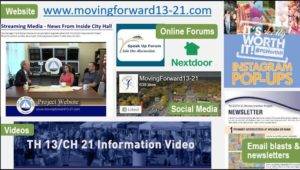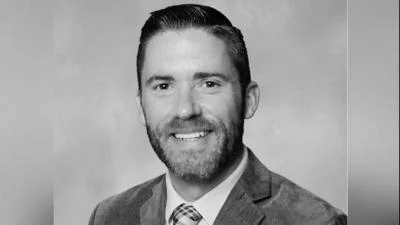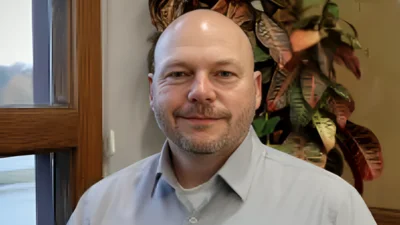Bolton & Menk Inc issued the following announcement on July 13.
Focus groups, pop ups, and other catchy communication tools have become the standard for inclusive engagement, but what happens when a global pandemic keeps everyone at home? The challenges of COVID-19 are reaching far and wide, and there isn’t a corner of the world that hasn’t been affected. Public engagement is an essential part of project success, and the importance of all voices being heard is unchanging no matter the circumstances. But how do you continue to engage the public from the safety of their homes in the 11th hour of a critical infrastructure project?
In the case of the Moving Forward 13-21 project in Prior Lake, the key to a successful COVID-19 transition did not start when Governor Walz ordered “Stay at Home” —it started back in 2017.
Get input early
From the beginning of the Moving Forward 13-21 project, intentional, pointed community engagement was executed to create a publicly accepted design and overall project. The first step in this project, and any engagement process, was research – finding out how the community lives, works, and plays. Through data and speaking with community leaders, the project team was able to learn the story of who Prior Lake is, what avenues of communication are already in use, what’s going to be the most effective way of reaching them, and what populations traditionally have not had a voice.
For Prior Lake and Scott County, this meant reaching locals at heavily attended farmer’s markets, a family rib fest, parades, and a fall community fest. The project team took this opportunity to point people to direct communication lines, like a project website, hotline, and email to help them to easily voice their concerns, suggestions, and questions.
Online communication opoortunities
The project website allowed for those who were unable to attend physical workshops to voice their concerns and join the discussion in forums, videos, and comment and chat features.
Over time, as themes start to develop, you learn what the community thinks of the project and what more they hope to see. This helps us, as the project team, recognize why it’s important to them, or why it is not. This understanding opens the door to either incorporate that idea into your project, or to say this isn’t technically feasible, which then gives the opportunity to educate, so that even when they don’t agree they can at least understand why. Reacting, adapting, and transparently addressing points of conflict eases the uncertainty of time consuming, expensive projects. The improvements and updates being made in these communities are going to be with residents for 20+ years so it’s essential to listen to them, as the community experts, so the project team can get it right.
Transition to a COVID-19 world
COVID-19 hit when the Moving Forward 13-21 project was moving into the final year of construction. With in-person avenues no longer available, the team adjusted its approach as if it were another changed condition in the project. The front-end work of getting to know the community led to a smooth transition to well-known digital methods that had been used to communicate with the public over the past four years, including the website, Facebook page, and email blast system with over 2,000 subscribers. The community liaison created a voice-over presentation to explain to all stakeholders what to expect during the final year of construction and was available to answer any questions about the project day and night through a project hotline.
Building trust is key to success
The benefits of focused community engagement go far beyond getting public approval for a project or a smooth construction process. Inclusive engagement will begin the larger, often laborsome task of building trust between the community and the agency. Trust is built by learning what the community values, how they communicate, and where they feel the most comfortable sharing and receiving information. Establishing these baseline values and consistently providing transparent communication to the public will build trust, which often gives agencies the benefit of the doubt when projects hit snags—even snags as big as COVID-19!
Trust is never a final destination; it’s a fluid process that requires agencies to be flexible as the community and its circumstances change. Recognizing this fluidity, project teams are ready to adapt their approaches, even under circumstances as life changing as a global pandemic.
As seen in Minnesota Cities Magazine and APWA-MN Newsletter
Original source can be found here.

Source: Bolton & Menk Inc



 Alerts Sign-up
Alerts Sign-up